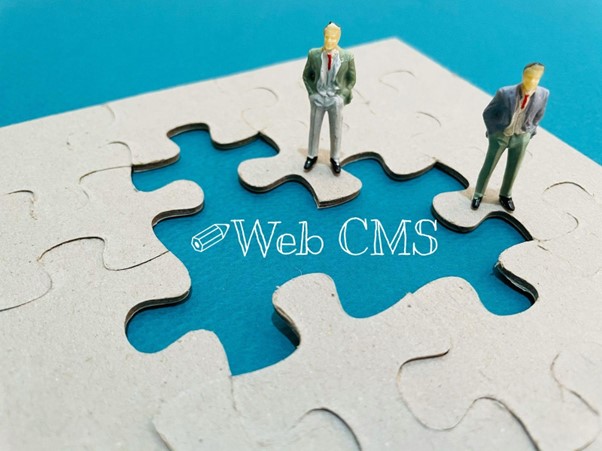Custom vs. CMS Website Building: Which is Best for You?
Your website is often the first impression customers have of your business. So, it’s crucial to get it right. But with so many options available, how do you choose between a custom or CMS Content Management System) website? Well, the answer is not as simple as it seems. While CMS website building is popular for its affordability and ease of use, they lack uniqueness and may not provide the level of customization required for larger businesses. On the other hand, custom website building offers complete control over the design and functionality of your website, but it can be expensive and require technical expertise. While both options have their own advantages and disadvantages, making the right choice can greatly impact the success of your business.
But fear not! In this blog post, we’re going to provide you with a unique perspective on the custom vs. CMS for web development debate. We’ll explore the differences between the two options and provide insights on how to determine which one is right for your business. But that’s not all! We’ll also give you a glimpse into the future of website design and discuss emerging trends that any Growth Marketing Agency follows and could impact your decision.
Let’s get started!
Understanding CMS Websites

A CMS website is a website that is built on a pre-built platform that allows you to create, manage, and update content without requiring any technical knowledge or programming skills. CMS platforms come with a pre-built set of features, templates, and tools that make it easy to create and customize a website, even if you have no prior experience in web design or development.
Some of the most popular CMS platforms available today include the following:
- WordPress
- Wix, and
- Squarespace,
Each of them has its own unique features and benefits. WordPress is an open-source CMS that offers a high level of customization and flexibility, making it a popular choice for bloggers, small businesses, and large corporations alike. Wix and Squarespace, on the other hand, are more user-friendly and geared toward small businesses and individuals who want to create professional-looking websites quickly and easily.
One of the key benefits of using a CMS website builder is that it allows you to create and manage your website without any technical knowledge or programming skills. This means that you can focus on creating great content, promoting your website, and growing your business, without having to worry about the technical details of website design and development.
What makes it a preferable choice is its affordability than hiring a professional web designer or developer. With a range of pricing options, from free to premium, depending on the features and level of support you need, CMS website building makes it easy for businesses of all sizes to create a professional-looking website on a budget.
Advantages of CMS Website Building
Here are some of the advantages of CMS website building.
- User-Friendly Interface
CMS websites are easy to use, even for non-coders, thanks to an intuitive and user-friendly interface that allows website owners to update and manage content on their own. The user-friendly interface of CMS platforms makes it easy for website owners to take control of their websites and update content as needed without having to rely on technical expertise or outside help. This can save time and money, and it can also ensure that website content stays up-to-date and relevant.
- Customization
CMS platforms provide a vast selection of templates and themes, giving website owners the ability to customize the look and feel of their website to match their brand’s identity. These templates are designed to be flexible, allowing for the customization of various elements such as colors, fonts, and layouts. This customization can be done without requiring any coding skills, making it easy for anyone to create a professional-looking website that represents their brand.
- SEO Friendly

When it comes to building a website, having a high search engine ranking is critical to getting your content in front of your target audience. CMS platforms are designed with SEO in mind and provide tools that help optimize your website to rank higher in search engine results pages (SERPs).
- Responsive Design
Most CMS platforms recognize the importance of responsive design and offer responsive design templates as part of their feature set. These templates are pre-designed and pre-optimized to ensure that your website looks great and is user-friendly across all devices. With responsive design templates, you don’t have to worry about spending hours tweaking your website’s layout for different screen sizes or losing potential customers due to a poor user experience on mobile devices.
- Easy Collaboration
Collaboration is key when it comes to managing a website, especially for businesses with large teams or remote workers. Fortunately, CMS platforms make collaboration a breeze by allowing multiple users to access and work on the same website simultaneously. This means that no matter where your team members are located, they can all log in to the CMS and work together on the website in real time.
- Scalability
With a CMS, scaling up your website doesn’t have to mean starting from scratch. Instead of building a whole new website, you can simply add new pages, features, and functionality to your existing site. Most CMS platforms make it easy to add new content and functionality with drag-and-drop page builders, custom widgets, and a wide range of plugins and extensions. This scalability also means that you don’t have to worry about outgrowing your website or your CMS platform as your business expands.
These are some of the benefits of using CMS platforms to build websites. However, it also comes with certain drawbacks. Some of them include the following.
Limitations of CMS Website Building
Nothing is perfect, and the same goes for CMS too. So here are certain limitations of the platform.
- Security

Popular CMS platforms are frequently targeted by hackers, making security breaches a potential risk if website owners fail to keep their sites up-to-date with the latest security patches.
- Slow Loading Times
CMS platforms may experience slower loading times, particularly when hosting content-heavy websites, resulting in a less than optimal user experience.
- Technical Complexity
The complexity of CMS platforms may be challenging for non-technical users to navigate, potentially limiting their ability to manage their websites effectively.
- Ongoing Maintenance
CMS websites require regular maintenance, including updates to the CMS software, themes, and plugins. This can be time-consuming and may require technical expertise.
Understanding Custom Websites
If you want a website that’s truly one-of-a-kind, a custom-built option might be the way to go. Custom-built websites are created from scratch and are uniquely tailored to the specific needs of a business. With this approach, you have complete control over the design, functionality, and user experience. This means that you can ensure that your website reflects your brand’s identity and message and provides your customers with the best possible online experience.
You can work with a web developer to choose the right color scheme, typography, and layout for your website, ensuring that every element is designed to attract and engage your target audience.
Custom websites are especially beneficial for businesses with more complex needs, such as e-commerce websites, social media platforms, or websites that require advanced functionality. With a custom-built website, a site can have all the features and capabilities that your business requires without the limitations of a pre-existing platform.
While a custom website may require a larger investment of time and money, it can provide significant long-term benefits. A well-designed and functional website can improve customer engagement and lead to higher conversion rates, ultimately driving more sales and revenue for your business.
Advantages of Custom Websites
The main advantages of custom websites include the following:
- High Level of Customization
When you opt for a custom website, you have the freedom to design and build your website from scratch according to your specific needs and requirements. This means that you can create a unique and personalized website that reflects your brand’s personality and sets you apart from your competitors. You have full control over the design, layout, features, and functionality of your website and can customize every aspect to ensure it aligns with your business goals and objectives.
- Improved Functionality
When it comes to functionality, a custom-made website has a lot of advantages over pre-built CMS platforms. You have the flexibility to create unique features and integrations that cater to your business needs. This means users can enjoy more personalized, which can help to increase engagement and customer loyalty. Though it might demand an upfront investment, the benefits can be massive in the long run.
- Increased Security

Custom websites are generally considered more secure than CMS websites since they are built from scratch with security as a top priority. Web developers can implement industry-standard security practices, such as firewalls, SSL certificates, and password protection, to ensure that your website is less vulnerable to cyber-attacks. Additionally, a custom website’s code is unique and not widely known, reducing the chances of attackers exploiting vulnerabilities that are common knowledge in CMS platforms.
Limitations of Custom Websites
Just like CMS website building, custom building websites also do have their own set of limitations. Here are some.
- Higher Cost

Custom websites can be more expensive than CMS websites as they require more development time. A custom website requires a team of skilled developers, designers, and project managers to create a website that meets your specific needs. As a result, the cost of building a custom website is usually higher than purchasing a pre-built CMS template. However, the investment in a custom website can pay off in the long run by providing a unique, highly-functional website that sets your business apart.
- Longer Development Time

Custom websites can take longer to develop as they are built from scratch. Unlike CMS websites, which use pre-built templates, a custom website requires a thorough planning and development process. The development team must first understand your business needs, design a custom user interface, and write custom code to ensure the website’s functionality. Depending on the complexity of your website, the development process can take several months. However, the time invested in a custom website can result in a highly-functional and personalized online presence for your business.
- Technical Knowledge Required

Since custom websites are built from scratch, they often require custom coding and technical expertise to maintain and update. This can make it challenging for non-technical users to manage their websites without professional assistance. However, most web development agencies offer ongoing maintenance and support to ensure your custom website remains up-to-date and secure. Besides, the investment in a custom website can provide a highly-functional and personalized website that meets your business needs.
There you have it! Both platforms have their pros and cons. So which one should you opt for? Let’s find out.
Key Factors to Consider When Choosing Between Custom and CMS Website Building
When it comes to choosing between a custom website and a CMS website, there are several factors to consider. So let’s discuss each of them.
- Budget

When it comes to building a website, budget is often a major factor. If you’re working with a tight purse string, a CMS website can be a great option, offering a range of pre-built templates and plugins that can save you time and money. But if you have a bit more wiggle room and specific requirements that can’t be met with a cookie-cutter website, a custom website may be the way to go. With a custom website, you’ll have the freedom to create a unique online presence that truly reflects your brand and vision. So, whether you’re looking for a quick and easy solution or a bespoke masterpiece, the choice between a CMS or custom website ultimately comes down to your budget and specific needs.
- Timeline
When you are launching a website, time is often of the essence. If you need to get your online presence up and running quickly, a CMS website can be built in the blink of an eye, with pre-built templates and plugins that can be customized to suit your needs. However, if you have ample time in hand and want to create something truly unique, a custom website may be the way to go. With a custom website, you can work closely with a developer to create a site that perfectly reflects your brand, values, and vision. So, how quickly you need your site to go live and how much time and effort you’re willing to invest in building your online presence will determine the kind of platform, you opt for.
- Level of Customization
A custom website allows you to tailor every aspect of your site, ensuring that it aligns with your brand and messaging. On the other hand, if you’re happy with a pre-built template and don’t require as much customization, then a CMS website may be sufficient. With a CMS, you can choose from a variety of templates and plugins to create a website that meets your basic needs. So if you require a high level of customization to achieve your desired online presence, then a custom website is the way to go.
- Technical Expertise
Technical knowledge makes all the difference and plays a crucial role in deciding which platform to choose. With a custom website, you can work closely with a developer to create a website that perfectly reflects your brand and messaging, from the layout to the functionality. You’ll have complete control over every aspect of your site, allowing you to make changes and updates as needed. However, if you can choose from a variety of templates and plugins that make it easy to create a website that meets your needs, CMS is the best option as it doesn’t require you to have knowledge of how to code or design a website from scratch.
- Scalability
When it comes to building a website, it’s important to think about your future goals and aspirations. If you anticipate rapid growth in the future, then a custom website is definitely the way to go. A custom website can be built with scalability in mind, which means that it can easily grow and expand as your business or organization does. With a custom website, you can work closely with a developer to create a site that can handle high traffic volumes, complex functionality, and other features that are necessary for a growing website. As a result, a custom website can save you time, money, and effort in the long run, as it can be easily scaled to accommodate your evolving needs.
These are the factors that can help you arrive at a particular decision. However, there are certain things that need your attention to finalize the platform you are going to work on for your website building.
Making Your Final Decision
For an actionable decision, don’t forget to
Weigh the Pros and Cons
When it comes to building a website, there are a variety of factors to consider before making a decision between custom and CMS options. By weighing the pros and cons of each option, you can make an informed choice that aligns with your specific needs and goals, budget, technical expertise, and future goals. So, take the time to consider your options and choose the one that will best suit your needs and help you achieve your online objectives.
Seek Professional Advice
The decision of choosing the right option for your website can be a daunting task. There are various options to choose from, such as website builders, content management systems (CMS), and custom web development. If you’re unsure which option is best for you, seeking professional advice can be beneficial.
Growth marketing services can provide valuable insights into your website’s technical requirements, such as hosting, security, scalability, and maintenance. They can also help you understand the costs associated with each option and recommend the best option based on your business needs, budget, and goals.
Which is a Better Option for You?
Choosing between a custom website and a CMS website ultimately depends on your business’s unique needs and goals. Whichever option you choose, it’s essential to prioritize a website that aligns with your brand and provides a seamless user experience. Remember, seeking professional advice from a Growth Marketing Agency can help you make an informed decision and ensure that your website meets your business’s needs and drives success.


